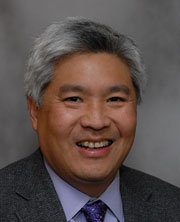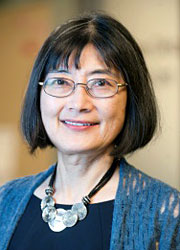Cancer
Conquering the number one killer of Minnesotans is no easy task.
At the University of Minnesota Medical School, cancer research comes in all shapes and sizes. From cancer prevention to clinical trials and treatment, our strong tie with the University of Minnesota's National Cancer Institute-designated Masonic Cancer Center, allows research to transition from the lab to real-world use in record time.
Current research strengths include projects as wide-ranging as bone marrow transplant (BMT), sarcoma research, and breast cancer prevention and treatment.
The University is also proud to call some of the world’s top pediatric cancer programs its own.
Cancer Research at the U
Masonic Cancer Center
Over 500 members working in a collaborative research environment focused on the causes, prevention, detection, and treatment of cancer. Designated by the National Cancer Institute as one of only 41 comprehensive cancer centers in the country.
Department of Radiation Oncology
Educating medical students, physicians, radiation technologists, physicists, and the public regarding cancer prevention, treatment, research, and advocacy.
Division of Hematology, Oncology & Transplantation
Committed to providing the highest quality care based on cutting edge research to patients with cancer or non-malignant hematologic diseases such as sickle cell disease. Dedicated to advancing research on the biological underpinnings of cancer, stem cell biology, sickle cell anemia, endothelial cell biology, and tumor immunology. Over 50 full-time academic investigators involved in interdisciplinary research and patient care are devoted to training the next generation of academic leaders.
Oncology in the Department of Obstetrics, Gynecology & Women's Health
The nation’s most prominent laboratory investigating angiogenesis in gynecologic malignancies and training Gynecologic Pathologists.
Conquering Breast Cancer

Douglas Yee, MD, director of the Masonic Cancer Center and John H. Kersey Chair in Cancer Research, is working to conquer breast cancer. Yee is the point person for cancer research at the University of Minnesota and a professor in the Department of Medicine at the Medical School. He also treats patients with breast cancer and researches experimental new therapies.
The focus of this research is to understand the contribution of insulin-like growth factor (IGF) action to the breast cancer malignant phenotype, and develop anti-IGF strategies with potential as cancer therapeutics.
Yee is co-chair of the Agent Selection Committee for I-SPY2, a national clinical drug trial the University is participating in for women who have large tumors and are receiving chemotherapy.
Efforts to combat breast cancer are also happening at the basic science level. Carol Lange, PhD, studies cancer cells under stress in her lab, in particular, the negative effect of certain hormones.
Nicotine Addiction and Treatment

Dorothy Hatsukami, PhD, is a nationally renowned expert in the field of nicotine addiction and treatment. Hatsukami is the associate director for Cancer Prevention and Control in the Masonic Cancer Center and Forster Family Professor in Cancer Prevention in the Department of Psychiatry at the University of Minnesota Medical School. She directs tobacco research programs at the University, and is a past president of the Society of Research on Nicotine and Tobacco.
Hatsukami’s research focuses on developing methods and measures to evaluate tobacco products, and works to develop a baseline of scientific research informing legislation to reduce tobacco-caused death and disease.
Hatsukami has served on a variety of national committees including the FDA’s Tobacco Product Scientific Advisory Committee.